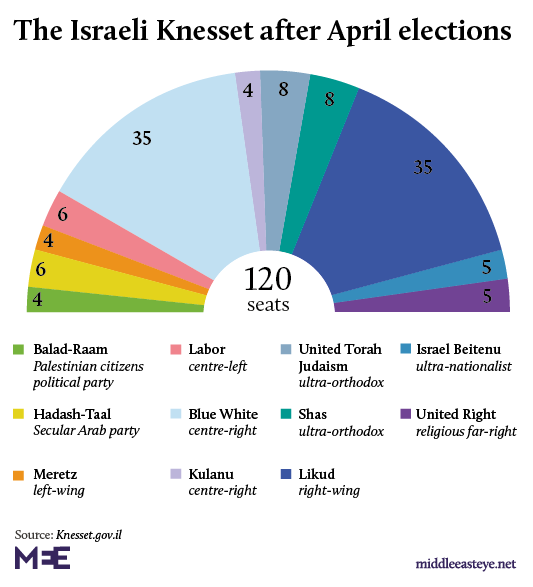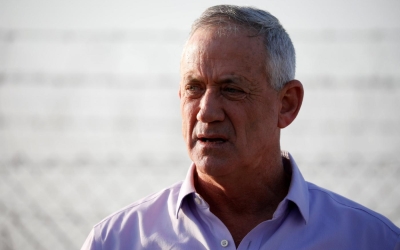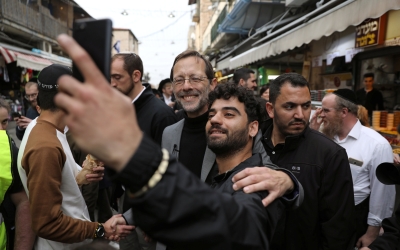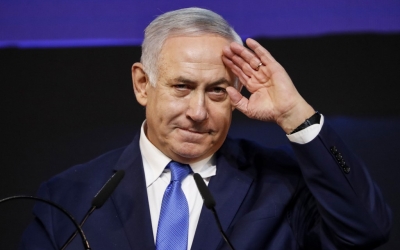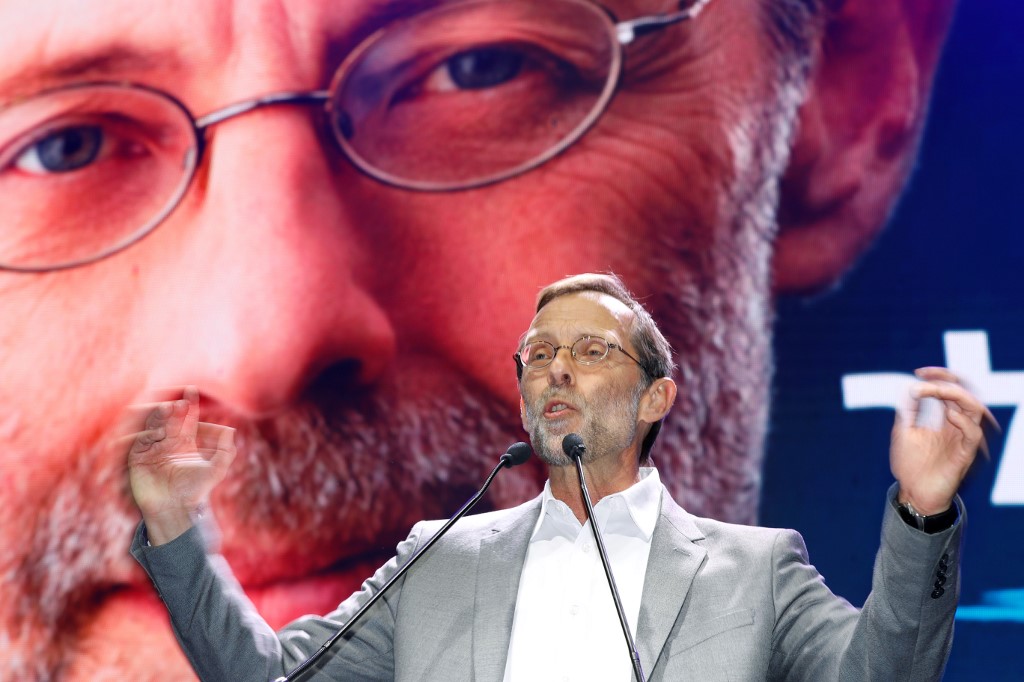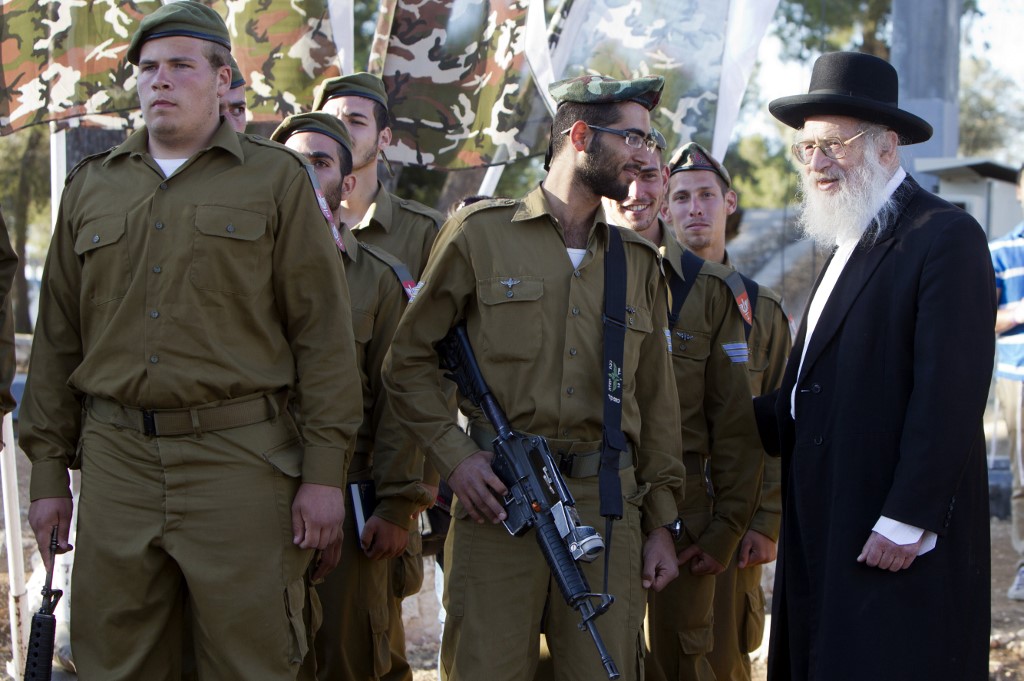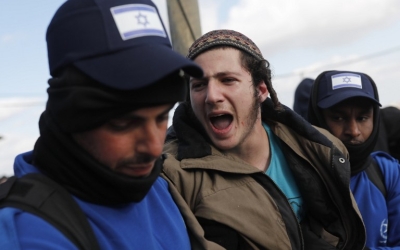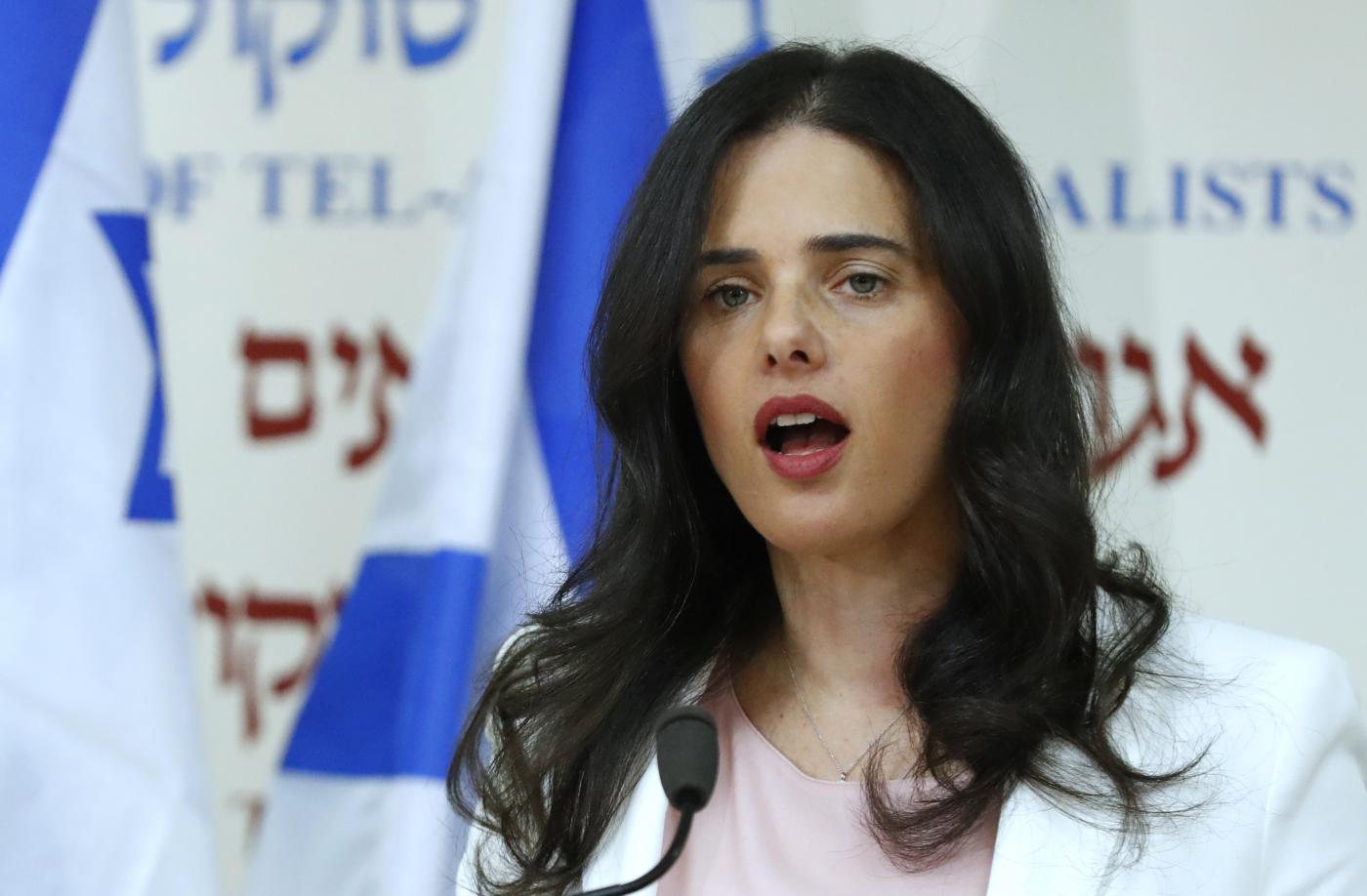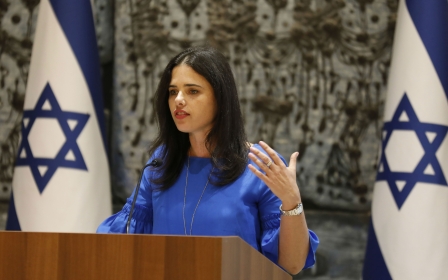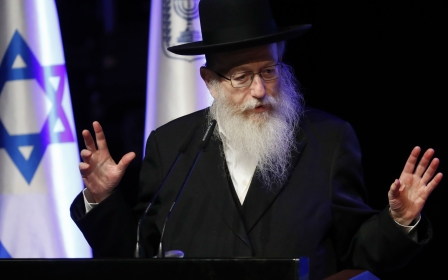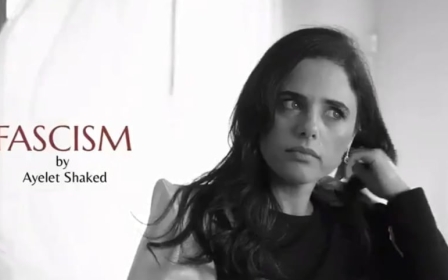How Israel’s religious right is now in the driving seat
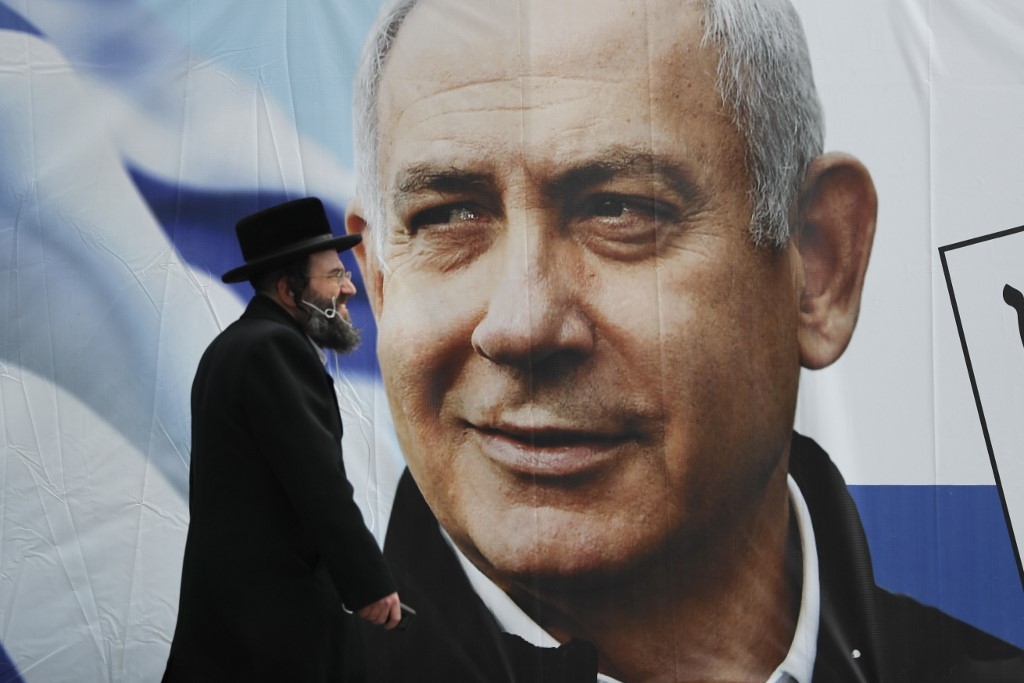
The real fight in Israel’s re-run election next month is not between the right wing and a so-called “centre-left” but between two rival camps within the nationalist right, according to analysts.
The outcome may prove a moment of truth for the shrinking secular right as it comes up once again against an ever-more powerful camp that fuses religion with ultra-nationalism.
Will the secular right emerge with enough political weight to act as a power-broker in the post-election negotiations, or can the religious right form a government without any support from the secular parties? That is what the election will determine.
An earlier election in April, which failed to produce a decisive result between these two camps, nonetheless confirmed the right’s absolute dominance. The Zionist centre-left parties, including the founding Labor party, were routed, securing between them just 10 seats in the 120-member parliament.
New MEE newsletter: Jerusalem Dispatch
Sign up to get the latest insights and analysis on Israel-Palestine, alongside Turkey Unpacked and other MEE newsletters
Netanyahu, the interim prime minister, was forced to stage new elections, on 17 September, after April’s ballot left him unable to rope together secular and religious parties on the right.
To secure a majority in parliament, he needed to include the five seats of the anti-religious Yisrael Beiteinu party, led by Avigdor Lieberman.
Lieberman eventually pulled out of coalition talks, saying he was not prepared to sit in a government with two parties effectively run by the ultra-Orthodox rabbinate. This time, he has indicated he won’t sit with any of the religious parties.
Vehicle for protest
Much of the rest of the secular right has deserted Netanyahu’s Likud party. At the last election, they mostly found a political home in the new Blue and White party, led by a former military chief of staff, Benny Gantz.
Polls suggest Lieberman may also attract a larger share of these voters after his recent stand-off with Netanyahu. He has demanded an exclusively secular right-wing government, comprising Likud, Blue and White, and his own Yisrael Beiteinu party.
Blue and White has presented itself chiefly as a vehicle for protest against Netanyahu. They oppose a decade of governments in which he has allowed the religious right to play an increasingly assertive role, and the ever-deepening corruption scandals he has been embroiled in. Netanyahu is expected to be charged with fraud and breach of trust in the immediate wake of next month’s election.
Blue and White has been misleadingly labelled as centrist by some observers. But it tied with Netanyahu’s Likud, at 35 seats each, in April by appealing to a largely secular strain of right-wing nationalism that three decades ago was the domain of the Likud party.
Now Netanyahu and the religious right hope to work in tandem to secure between them a narrow majority of seats to form a government without relying on the secular right-wing parties of either Lieberman or Gantz.
A more polarised Israel
Yossi Gurvitz, an Israeli journalist and researcher on religious extremism, said the rise of the religious right was an indication of wider shifts in Israeli society.
“Israel is getting more religious, and its religious parties are getting more extreme, while much of what’s left of Israeli society is becoming more militantly secular in response,” he told Middle East Eye. “Israel is polarising, and each is side is increasingly intolerant of the other.”
The secular camp, however, has been playing a less significant role with each passing government.
Menachem Klein, a political science professor at Bar Ilan University, near Tel Aviv, said he doubted whether it was still possible for a secular government to be established without including some of the religious parties.
“It would be a nightmare,” he told MEE. “Any move, whether allowing transport on Shabbat, dismantling settlements or talking to the Palestinian leadership would face an enormous social backlash if it was made without the sanction of the religious factions.”
A poll of Israeli Jews last year by the liberal Haaretz newspaper highlighted Israeli society’s growing religiosity, which closely aligns with the rise of ultra-nationalism.
Some 54 percent of the Jewish public expressed a belief in God, with that figure rising to 78 percent among those describing themselves as on the right.
An overwhelming majority of right-wing Israelis – 79 percent – view Jews as the chosen people, and a similar number, 74 percent, believe Israel exists by divine promise.
Younger voters are markedly more religious than their grandparents – 64 percent compared to 22 percent. Exactly half of young Israelis reject the scientific theory of evolution, and 58 percent believe in life after death. Haaretz noted a clear correlation between Israeli youth’s growing religiosity and their embrace of right-wing views.
“If you think Israel is religious, conservative and hawkish enough as it is, wait for the fundamentalist theocracy that's lurking around the corner,” the paper’s analyst Chemi Shalev concluded.
Rallying the right
How Israel’s coming election plays out will depend on how successful Netanyahu is in rallying religious voters to the polling booth, either for Likud or for a handful of more overtly religious parties.
The religious right itself is characterised by three main blocs. All believe that the occupied territories belong exclusively to the Jewish people, and are united in their unabashed support for the settlements and the entrenchment of the occupation.
Political differences relate chiefly to matters of how quickly and brazenly the occupied territories should be annexed and how the Palestinian population there should be dealt with.
More significant than ideological differences, however, are the varied religious constituencies that each bloc represents.
Netanyahu’s Likud party is the largest, and draws primarily on the support of religious traditionalists – Israeli Jews who are generally observant and socially conservative.
Likud, Gurvitz noted, has moved more firmly into the religious camp since 2005 when its then-leader, Ariel Sharon, pulled the last remaining settlers out of Gaza. A backlash from the settlers effectively forced Sharon and his supporters out of Likud to create a short-lived secular faction called Kadima.
“What was left behind in Likud was the hard right,” he said. “The party has been moving ever further to the right under Netanyahu.”
Since then, the settlers and their allies have come to dominate Likud’s internal committees, meaning none of its parliamentary candidates wish to risk alienating them, according to Gurvitz.
Politics of the rabbis
The second bloc comprises two ultra-Orthodox parties, Shas and United Torah Judaism, which look to their respective chief rabbis for political direction. Between them they won 16 seats in April.
The main difference between the two relates to ethnicity. United Torah Judaism represents the Ashkenazi ultra-Orthodox community, whose recent ancestry is traced to Europe. Shas, meanwhile, represents the Mizrahim, Jews whose families hailed mostly from the Arab world.
'The ultra-Orthodox parties are today effectively in the bag for Netanyahu'
- Yossi Gurvitz, journalist and researcher
Shas, observed Gurvitz, has blended its rigid belief in divine law with nationalism more easily than UTJ because of its long-held anti-Arab positions. A section of its followers serve in the army. Some also work, unlike most Ashkenazi ultra-Orthodox men, who devote themselves to studying the Torah.
The UTJ, by contrast, has adapted more slowly. Historically, it was anti-Zionist, rejecting the secular institutions of an Israeli state – including the army and the courts – until the Messiah arrived to build God’s kingdom.
But over the past two decades, its leaders too have gradually, though more reluctantly, moved into the nationalist fold.
That change, according to Gurvitz, has happened because, given the ultra-Orthodox public’s high birth rates, many have been forced to seek cheap housing solutions in the settlements.
“As they move into the settlements, their politics shift further rightwards,” said Gurvitz. “Nowadays they give their leaders hell if they don’t stick fast to ultra-nationalistic positions, or if they try to cut deals with parties outside the right.”
Gurvitz added: “This means the ultra-Orthodox parties are today effectively in the bag for Netanyahu.”
Orders from God
The third bloc comprises various small far-right parties representing what are known in Israel as the national-religious camp – those who subscribe to the ideology of the settler community.
Gurvitz estimates the camp numbers close to one million – or about one in seven of Israel’s Jewish population. About half live in the settlements of the West Bank and East Jerusalem. The majority are religious, but not all of them.
The camp has proved fractious, but its three main parties established an electoral coalition last week called United Right, which polls currently suggest may win up to 14 seats.
The oldest of the parties is Jewish Home, whose new leader is Rafael Peretz, a former chief rabbi of the Israeli army and currently serving as Netanyahu’s interim education minister.
Peretz has caused controversy recently by referring to a trend of American Jews marrying non-Jews as a “second Holocaust” and by speaking out in favour of gay conversion therapy, claiming to have performed it himself successfully in the past.
The second party, Tkuma, is led by Bezalel Smotrich, currently the transport minister. After being appointed, he declared that he took his orders from God, not Netanyahu.
Smotrich has in the past called for a shoot-to-kill policy against Palestinian children who throw stones, and demanded segregated maternity wards to prevent Israeli and Palestinian citizens mixing. He has also described himself as a “proud homophobe”.
Both Peretz and Smotrich were due to deliver speeches this week at a ceremony honouring Yitzchak Ginsburgh. The controversial rabbi has praised the King’s Torah, a notorious handbook that sanctions the murder of Palestinian children, and has previously lauded Baruch Goldstein, who massacred dozens of Palestinians in a Hebron mosque in 1994.
Gaza’s ‘little snakes’
The third party in the coalition, New Right, which broke from Jewish Home late last year, narrowly failed to pass the electoral threshold in April, costing Netanyahu his victory.
Now led by Ayelet Shaked, a secular politician, New Right downplays the role of Jewish religious law. It has tried to appeal to secular, nationalistic Jews by adopting a more tolerant stance on identity issues, such as gay rights and feminism.
Shaked, who previously served as justice minister, has been outspoken in rejecting liberal democratic values, however, calling them “utopian”. She has said: “Zionism should not – and will not – bow before a system of individual rights interpreted universally.”
During Israel’s 2014 attack on Gaza, she also declared that “the entire Palestinian people is the enemy”, and appeared to approve of the slaughter of Gaza’s civilians, calling for Palestinian mothers to be killed to stop them giving birth to “little snakes”.
Three smaller national-religious parties are outside the United Right coalition and, barring last-minute changes, are not expected to make it into the parliament.
Noam is a backlash party from within the national-religious camp to the social liberalism of Shaked’s New Right, demanding a “normative” Jewish family life.
Jewish Power comprises the unrepentant remnants of the virulently anti-Arab Kach party, led by the late Rabbi Meir Kahane, that was outlawed in Israel in the 1990s.
And the libertarian-nationalist Zehut party, led by Moshe Feiglin, an exile from Likud, demands full annexation of the West Bank.
State agencies infiltrated
Gurvitz observed that the three main national-religious factions all place a strong emphasis on military service, and have focused on getting settlers into senior roles inside the army.
Rather than rejecting the state’s secular institutions, as the ultra-Orthodox tend to do, the settler parties have been working hard to infiltrate and gradually take them over, with some success in the case of the police, the courts, the education system and even the ruling Likud party.
They view themselves as in a culture war, trying to infuse Israel with a stronger Jewish identity.
The three parties have minor differences over their approaches to annexation of the West Bank, likely the biggest issue facing the next parliament.
Shaked’s New Right and Peretz’s Jewish Home demand formal annexation of most of the West Bank, denying Palestinians there equal rights and imposing apartheid-style rule over them.
Since Donald Trump became US President, Likud has moved closer to openly adopting this as its policy.
Smotrich, meanwhile, would prefer to annex the entire West Bank and has been more explicit in suggesting it would be necessary to ethnic cleanse Palestinians as part of that annexation process.
Courts intimidated
Paradoxically, two of the three religious-dominated blocs are led by secular politicians: Likud by Netanyahu, and the coalition of settler parties by Shaked.
Shaked’s leadership role is the more surprising given that national-religious rabbis have pushed to remove women from public life.
However, Shaked has won support from influential figures such as Avichai Rontski, a former army chief rabbi. He has approved partnerships with nationalist secular politicians, calling them “religious in the broad sense of the word”.
Analysts noted that Shaked has won a dominant role in the political leadership of the national-religious public, over the rabbis’ objections, for two reasons.
First, she proved to be a very effective justice minister for the settlers in Netanyahu’s last government. She intimidated the courts and promoted a large number of conservative religious judges, including to the supreme court.
Equally importantly, noted Gurvitz, she changed the justice ministry’s position on settlement “outposts”, built in violation of a settlement freeze agreed by Israel in the Oslo accords of the mid-1990s.
Traditionally, justice ministry officials accepted – at least in public – that these 100 or so outposts were illegal and that they should be dismantled when the army or the government viewed the time as right.
But officials under Shaked changed tack, arguing to the courts that the outposts were in essence legal, but had been created with administrative irregularities that needed correcting. The Regularisation Law formalised this approach, clearing the way to future annexation of much of the West Bank.
Nationalism as ‘a bridge’
Second, Klein pointed out, Shaked was seen as a bridge between the religious and secular nationalist right that could maximise its electoral vote.
The complexity on the right, he said, was caused by the fact that “Jewish” identity had both religious and ethnic components.
“For some people their Jewish nationalism is based on theology and religious observance. For others, like Shaked and Netanyahu, their nationalism derives from an idea of Jewish peoplehood, without a religious element. You can find both types supporting Likud and the national-religious bloc.
“The ‘peoplehood nationalists’ are not interested in universal values. They think the Jewish people are special, and that they have extra rights as Jews. Any religious sentiments they harbour are subservient to this idea of peoplehood," he said.
Polls have shown Shaked to be remarkably popular among religious nationalists, coming out way ahead of her rivals.
For all three parties to pass the electoral threshold and avoid wasting votes, Klein observed, they needed to unite.
In fact, to maximise votes for the religious right and avoid needing Lieberman’s seats, Netanyahu pushed hard to get the openly anti-Arab party Jewish Power into the United Right coalition – without success.
Klein noted that Netanyahu preferred working with the religious over the secular right. In the run-up to the election, all the religious parties have been keen to pledge allegiance to a Netanyahu government.
“They are very easy partners for Netanyahu,” he said. “Give them a few ministries and some budgets for their community and they will get behind whatever he wants to do.”
‘Difficult dance’ for votes
Shaked and Netanyahu are politically similar. Shaked worked as Netanyahu’s bureau chief back in 2006, and a short time later brought in Naftali Bennett, her current partner in New Right. Both left four years later after a personal falling out with Netanyahu.
The Israeli media widely reported Shaked’s efforts to return to Likud before the September election. Netanyahu rebuffed her. That may be in part because he fears she could be a major challenger for his Likud crown were she to gain a foothold.
Gurvitz observed that Netanyahu was involved in a “difficult dance” with the settler parties for votes.
“He needs their votes to ensure he can form a government, but he doesn’t want them so strong that they can dictate terms to him," he said.
Gurvitz believed that, with the United Right now certain to pass the threshold, Netanyahu would seek to steal votes from them in the final stages of the election, as he has done before.
The fact that Likud and the United Right compete for largely the same pool of voters had fuelled even more extremist positions on the right, he added.
“The national-religious parties need to offer more extreme policies to distinguish themselves from Likud, otherwise they will lose votes to Netanyahu,” he said.
“But that then encourages Netanyahu to take more extreme positions to ensure he doesn’t look less nationalist than his rivals. It ends up creating a spiral of extremism.”
This article is available in French on Middle East Eye French edition.
Middle East Eye delivers independent and unrivalled coverage and analysis of the Middle East, North Africa and beyond. To learn more about republishing this content and the associated fees, please fill out this form. More about MEE can be found here.


